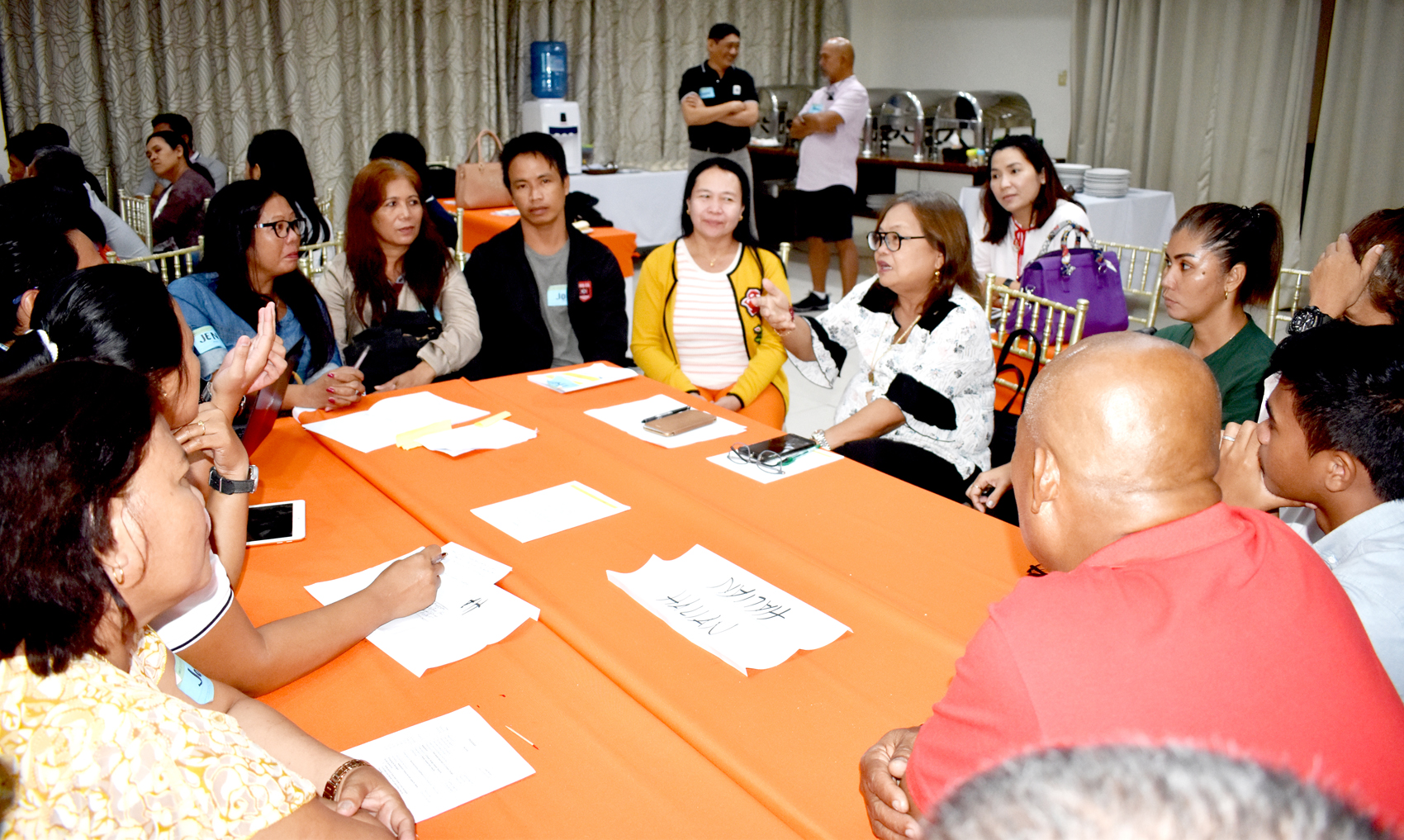SMILE Project to enhance off-grid islands’ resiliency to climate shocks
December 2019

On the way to Barangay Halian, one of the pilot islands of the SMILE Project, one has to pass through this lush mangrove forests of Del Carmen, Surigao del Norte. Hidden among these 4,200 hectares of mangrove forests is the Sugba Lagoon, one of the top tourist attraction of Siargao, Surigao del Norte. Photograph (c) Bong Fabe / WWF-Philippines
SURIGAO CITY—Small-scale fishing communities often live a vulnerable existence. Physically, fishing is a demanding job. It also solely depends of what nature can offer at a particular time. And fishing is fraught with danger, even at the best of times.
And in these days where the global community is facing a climate emergency, fishing resources, just like any other environmental resources that sustain households and communities, are on a steady decline, due in some part to over exploitation. And this put intense pressure on fishing families and communities to make ends meet.
A disruption in fishing is also a disruption in the community since fishing in not just a livelihood, especially in the islands, but a way of life. And this is more pronounced in the island-barangays of Anajawan, where 17 percent of residents 15 years old and above are dependent on fishing; Cab-ilan (22%); Halian (25%); and Kanihaan (17%).
Excessive reliance of environmental resources, such as fishing is not sustainable since it is highly dependent on and vulnerable to the weather and climate.
And because these four island-communities have huge potentials for eco-tourism, WWF Philippines together with the University of the Philippines Asian Institute of Tourism (UPAIT), Association of Isolated Electric Cooperatives (AIEC) thru its subsidiary, AIEC Missionary Green Energy Corporation (AIEC MGEC), Siargao Electric Cooperative (SIARELCO), and Dinagat Island Electric Cooperative (DIELCO) is piloting the SMILE Project in these areas.

Barangay Chairman Rosebelt Lim of Anawajan Island in the Municipality of General Luna, Surigao del Norte presenting his barangay’s Climate Change Adaptation Plan during the Local Climate Change Adaptation Plan and Livelihood Workshop organized by the SMILE Project in Surigao City. Photograph (c) Bong Fabe / WWF-Philippines
Tourists are already visiting these islands, but due to lack of reliable 24-hour power and accommodation, there is hardly any development going on in the communities. And the SMILE Project, which is funded by the European Union, will provide 24/7 renewable hybrid energy services while at the same time generate sustainable and environmentally-sound livelihood interventions linked to tourism in these islands.
Over the course of several workshops, representatives of the four communities led by their respective barangay chairpersons, drew up sustainable eco-tourism and environmentally-sound livelihood plans for their barangays. During these workshops, the communities validated the result of the socio-economic survey done in the four sites and used these to identify the livelihood intervention they need and the key actions to be done to initiate it. They also formulated adaptation measures to improve the islands’ resilience to climate change as well as identify outside assistance needed to implement the climate change adaptation measures and livelihood intervention they have identified.
Common to all four communities, the stakeholders identified the micro-hotel with solar panels on the roof as the number one candidate sustainable and environmentally-sound livelihood project. The panels will be connected to a hybrid renewable energy plant to be constructed in each site. Component to the micro-hotel are eco-tours, like hiking, snorkeling, diving, manta ray sightings, etc. It is strongly hoped that from this main livelihood intervention, downstream sustainable and eco-friendly micro-industries that will also provide alternative sources of income to the residents will blossom in these islands.

Del Carmen, Surigao del Norte Mayor Proserfina M. Coro (with glasses, in black and white blouse) facilitating a group discussion during the LCCAP and Livelihood Workshop organized by the SMILE Project in Surigao City.
Photograph (c) Bong Fabe / WWF-Philippines
An essential part of sustainable eco-tourism is an eco-friendly accommodation that combine conservation with relaxation, whose operations integrate sustainability into its core.
Eco-tourism is hailed as a more sustainable form of tourism since the tourist aims to reduce his/her impact on the environment while partaking in activities that both immerse him/her in nature and promote the conservation of the natural environment he/she has come to enjoy.
The use of hybrid renewable energy and promotion of eco-tourism in these four island-barangays are needed since they are highly vulnerable to the impacts of climate change, such as sea level rise (SLR), storm surge, floods, etc.
Coupling sustainable eco-tourism activities with hybrid renewable power and creating sustainable and environmentally-sound livelihoods will allow these communities to take advantage of the opportunities provided by the blossoming tourism industry in Siargao, Surigao del Norte and Dinagat Islands Province while enhancing these island-barangays’ resiliency to climate shocks.
For more information, please contact:
Mr. Joeffrey T. Maglinte
Project Manager, SMILE Project
jmaglinte@wwf.org.ph
Mr. Mach AD Fabe
Integrated Communications Manager, SMILE Project
mfabe@wwf.org.ph
Ms. Pam Luber
Integrated Communications Manager
pluber@wwf.org.ph
